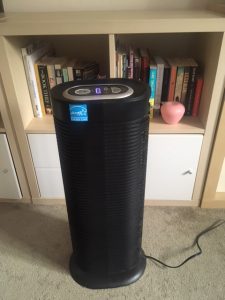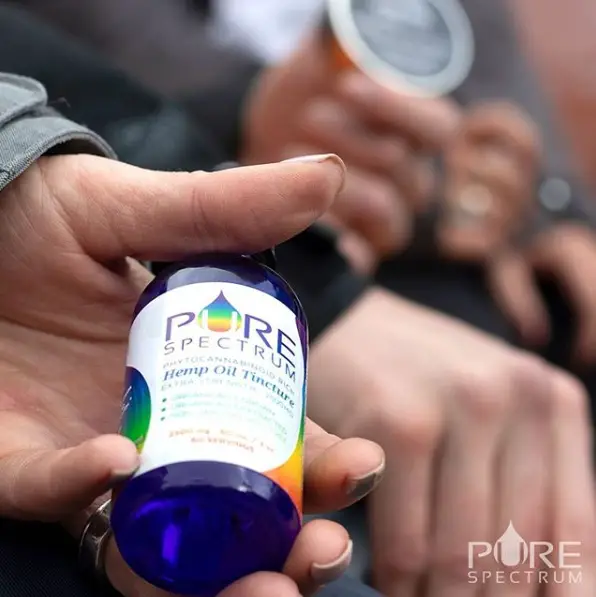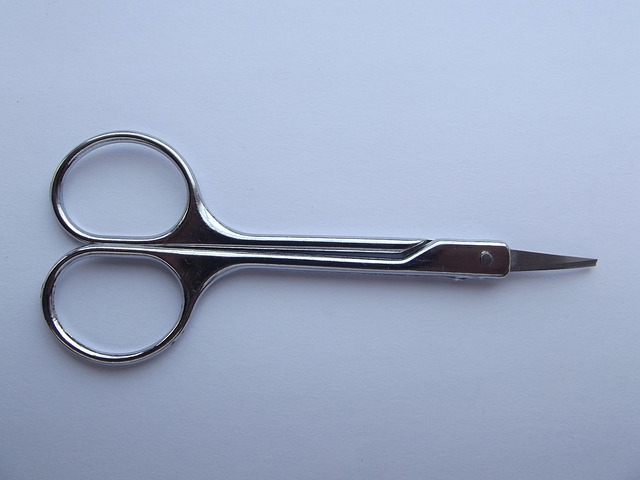Can Asthma Be Cured?
If you have asthma like I do, you’ve probably asked yourself, ‘can asthma be cured?’ No one wants to be dependent on expensive preventative asthma inhalers like flovent or advair, etc. Or even worse—dependent on nasty rescue inhalers like ventolin or albuterol.
The good news though is that you can absolutely get rid of 99% of asthma symptoms, without the use of asthma inhalers. I’m living proof! It’s a simple process, but not an easy one, because it requires some lifestyle changes.
I’ll describe exactly how I eliminated all my major symptoms below.
But first, let’s look at whether or not we can actually cure our asthma for good.
Can Asthma Be Cured?
I would sometimes worry about what might happen if I was trapped somewhere or didn’t otherwise have access to my inhalers. Would I die? How long could I survive and what kind of excruciating death would it be to die of slow asphyxiation?
It’s pretty scary to think about, to say the least. So I used that fear as a notice to take stock of my life and my health, and to come up with something to get off the prescription asthma medication for good.
What I found out was pretty encouraging, although it might not seem that way at first.
Bad news first, there is no cure for asthma. Asthma is essentially a lifelong condition, and we don’t fully understand it yet. It’s caused by an almost countless number of factors ranging from genetics, antibiotics, and food, to your childhood environment, and that’s just a start.
Received wisdom tells us that no matter the cause, you treat your asthma the same way regardless — with strong prescription inhalers that reduce inflammation and physically open the airways. Pretty harsh, huh? Especially since albuterol has lots of nasty side effects. Not to mention the cost.
So in my experience, one of the biggest problems we asthmatics run into is in thinking about our disease in the wrong way. Asthma is NOT a one-cause-one-solution type of condition.
Therefore, there isn’t going to be “one simple thing” that magically cures your asthma.
And even if there was one ‘cure,’ it’s definitely not going to be something simple and easy like an ingredient added or subtracted from your meals. Take it from this lifelong asthmatic, who’s already tried all the easy fixes.
So that’s the bad news. There is no cure for asthma.
But the good news? You can still get rid of practically all your asthma symptoms, so it doesn’t have to affect your quality of life.
But you have to stop looking for a quick fix, and instead think about treating your whole health, including your lungs. Thanks to the steps I outline below, I haven’t needed to take my puffer in years (except when sick). They’ll work for you, too, if you stick with it.
The Steps I Took To Cure My Asthma Symptoms
First, let’s focus on the long term strategies that are going to reduce your need for your inhaler overtime. These aren’t quick fixes, but if you stick with them, I promise you’ll start to breathe better.
Diet
 I keep saying it on this asthma blog: you are what you eat. And if you all you eat is trash, your body is going to be trash at fighting off asthma.
I keep saying it on this asthma blog: you are what you eat. And if you all you eat is trash, your body is going to be trash at fighting off asthma.
This is a commonly overlooked aspect of asthma. And I’m not just talking about eliminating food you’re allergic to, which of course is very important. It’s important to also eat wholesome, healthy foods that give you nutrients and energy. This is crucial if you want to give your body a fighting chance against asthma.
There’s no one diet that’s best for everyone, unfortunately. I can’t tell you how many blog posts and articles I’ve read from other asthmatics saying you should eliminate eggs or red meat or gluten (etc etc) and it will cure your asthma.
It just isn’t that simple.
Eggs, for example, are among my favorite foods – I eat them almost every day. They’re one of the cleanest sources of energy and nutrients out there, and they’re generally very affordable too.
So without a specific food intolerance to them, it’s ludicrous to suggest, let alone advocate, that getting rid of eggs is a cure for anything. It’s just another one of those “one simple trick” fixes that are completely bogus and actually detrimental to those who blindly follow the advice.
(You might be picking up on something here. My wife and I started this asthma website because I’m sick of all that bad info out there!)
Anyway, enough about eggs! The point I’m making is that you should be trying to eat as many clean wholesome foods you can, while eliminating high refined, highly processed junk foods full of sugar and unclean fats.
It might also be of use to see an allergist, or keep a food journal, to see what foods you are specifically intolerant to and then avoiding those foods as well. Learn more about how to journal for asthma management here.
To take the next steps to clean up your diet to treat your asthma, check out my article on asthma and diet here (including my asthma diet)
And don’t worry – you don’t need to have the perfect diet all the time to see results. Even just eliminating a little junk food here and there can start to have an impact! The worst thing you can for your asthma is add extra stress to your life, so don’t stress about your diet. Try to do better, and take comfort in small accomplishments.
Exercise
Physical activity should also be a key component of your Asthma-Fighting Toolkit. It should be a no-brainer: exercise builds up the muscles that are used for breathing and keeps your body and immune system going strong.
 Low impact aerobic exercises are a great way to get started. It will improve your cardio and make your breathing muscles stronger. I use a rowing machine, but any kind of sustained aerobic exercise will give you the benefits you’re looking for.
Low impact aerobic exercises are a great way to get started. It will improve your cardio and make your breathing muscles stronger. I use a rowing machine, but any kind of sustained aerobic exercise will give you the benefits you’re looking for.
Now I get it. At first, exercise will make you more wheezy – and who wants to be wheezy in a public gym? That’s why if the public nature of working out is holding you back, I recommend you work out from home!
A few simple weights and my trusty rowing machine were enough for me to get started (want to learn more? see my complete rowing machine guide here). I recently purchased this affordable chin up bar that easily attaches to my door frame, and it also works great.
With all those great free workouts available online, you really can invest in a few simple pieces for your home without breaking the bank.
In addition to the above, exercise will help you lose fat from your body, especially around your vital organs, making it easier for you to breathe.
And that’s not just good for asthma either. In fact research has shown that people who stay physically active have a lower risk of stroke, heart disease, dementia, diabetes and many forms of cancer.
So what are you waiting for? 🙂
Breathing Better
I find it funny that in all my years of going to the doctor for my asthma, no one ever told me to think about my breathing or to try simple breathing exercises to help relieve and prevent symptoms.
Many people, me included, have had some success with the Buteyko method.
‘Buteyko’ refers to a system of breathing developed in the former Soviet Union that attempts to address the symptoms and causes of asthma without medication.
It was one of the turning points in my asthma journey because it was the first thing I’d seen that suggested I try not using ventolin and letting my asthma symptoms pass naturally (and they give you tools to make this easier).
Now, it doesn’t have to be Buteko itself, and you also don’t have to ‘buy in’ to every bit of Buteyko to get results. Maybe you prefer to stick to yoga and meditation. Whatever. The point is that learning how to control your breathing a bit better can help relieve stress – and symptoms. So why not try?
If you’re interested in learning more about Buteyko, check out these articles:
A Little Buteyko Breathing Goes A Long Way
Are You Hyperventilating Without Even Knowing It?
So these are some simple yet very effective long term strategies for managing your asthma symptoms – and I hope you can start to implement them in your life. Again, you don’t need to do them all perfectly to start seeing results.
And a final tip about better breathing – pleeeeaaaase make sure you breathe through your nose (and not your mouth) as much as possible. Here’s how doing so can really help with nighttime asthma symptoms.
But I get it. You might want to get rid of your symptoms right now! Thankfully, I have some more tips to help.
Clean Your Air
There are tons of legitimate studies out there that show that cleaning the air with a HEPA air filter is beneficial for asthmatics.
Since they’re not too expensive, this can be a simple and easy thing you can do to improve the quality of air in your home in a matter of hours. Just be careful, because there are some types of air purifiers that can actually be harmful to asthmatics (yikes). Learn all about it in my complete guide to air purifiers and asthma.

For my money, I went with the Honeywell HPA160 HEPA Tower Allergen Remover (link to Amazon). It’s a great little number, the replacement filters aren’t too expensive, and it helps capture 99.97% of microscopic allergens such as mold, fungi, VOCs, certain bacteria, dust, pollen, smoke and pet dander (super helpful since I also have a cat!). It’s a great device for homes of asthma sufferers.
Things You Can Do TODAY To Help Cure Your Asthma Symptoms
First, drink loads of water. And I mean loads. Staying hydrated is good for overall health and it’s especially good for asthmatics.
 Several studies have looked at the connection between dehydration and the production of histamines—the bodies natural response to injury and allergens. They found that histamines were produced in greater number when not properly hydrated.
Several studies have looked at the connection between dehydration and the production of histamines—the bodies natural response to injury and allergens. They found that histamines were produced in greater number when not properly hydrated.
Therefore drinking enough water will keep your histamines under control that would otherwise aggravate your asthma. Water is also going to keep your phlegm and mucus diluted and easier to pass without excessive coughing.
Struggle to get in enough cups each day? Here’s 7 easy ways to drink more water.
In fact, drinking more water is the first step I took to get off albuterol completely. See my complete guide to getting off albuterol here.
Second, stop mouth breathing. I’ll admit it – I used to breathe out of my mouth way too much. Which was terrible, because mouth breathing has a huge negative impact on your breathing and oral health. It can cause over-breathing, hyperventilation, dry-mouth and a sore throat.
You may not even notice you’re actually mouth breathing half the time. Thankfully, it’s easy to fix. You just need to retrain yourself to keep your mouth closed by consciously breathing through your nose only.
At night, I actually use a piece of medical tape to tape my mouth shut. This is a super effective strategy, but you need to do it properly. Learn more about how to make your asthma symptoms better at night here.
Third, consider CBD. I don’t take vitamins but I do use a few supplements. The most important is CBD, or cannabidiol.

CBD is derived from hemp or marijuana, and is available without a prescription in Canada, the US and Europe. Thankfully, it has most of the medical benefits of marijuana, but none of the psychoactive effects (ie, it won’t make you ‘high’).
CBD has many amazing benefits, and it is particularly noted for its anti-inflammatory properties. I highly recommend it for asthmatics and I believe with the correct dosage most people will see noticeable results, likely within days.
There are really no negative side effects to taking CBD but consult your doctor if taking any other medications to make sure they don’t counteract with one another. For more information, check out my article on CBD and asthma here.
And if you’re in the United States or Europe and looking for a trustworthy CBD retailer, I recommend Pure Spectrum, which is organic and 3rd party tested. Asthmatics probably want to use a hemp oil tincture (as opposed to something you smoke or vape), or this very cost effective CBD isolate powder. If you’ve got questions about how to actually use CBD, please see here or email me at treatasthmaathome@gmail.com.
So the next time you ask yourself ‘can asthma be cured?’, I hope that you’ll stop and re-frame the question. The real question is, does asthma have to have a negative impact on my life. And I’m happy to report that it doesn’t!
If you found this article helpful, then I think you’ll also be sure to check out my Ventolin Abuse Guide, my 5 Easy Steps To Getting Off Albuterol For Good, and the 5 Home Remedies for Asthma That Actually Work. I think you’ll enjoy them!
Finally, my wife, Emma and I write this blog to try to help out fellow asthamtics. If you’d like to support us, please consider using our Amazon links for any products you might be considering. Find more in our Asthma Tools section.
And please let us know in the comments – what have you done to lessen you asthma symptoms?







